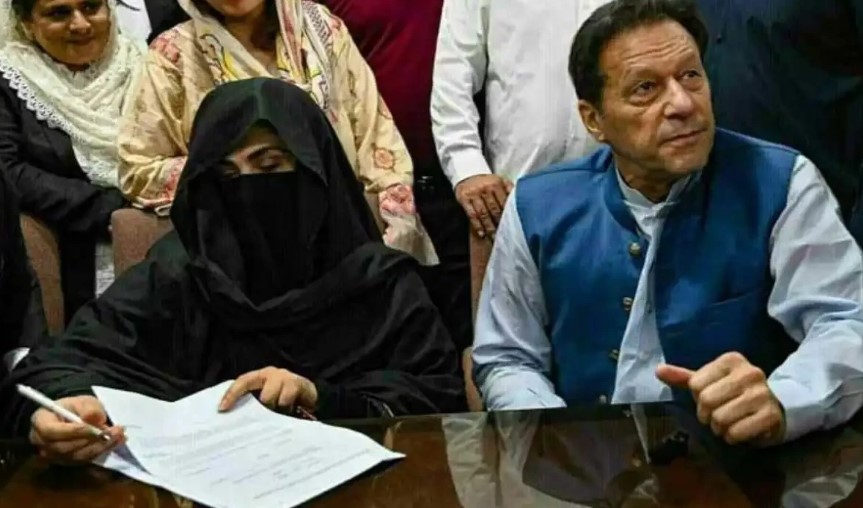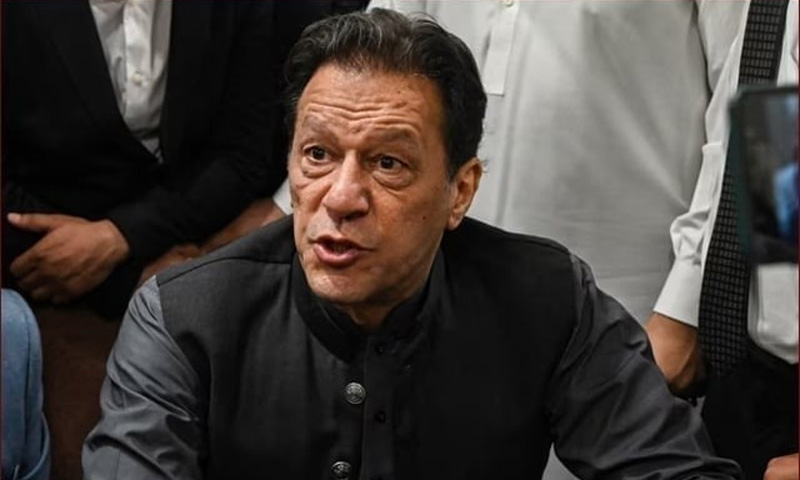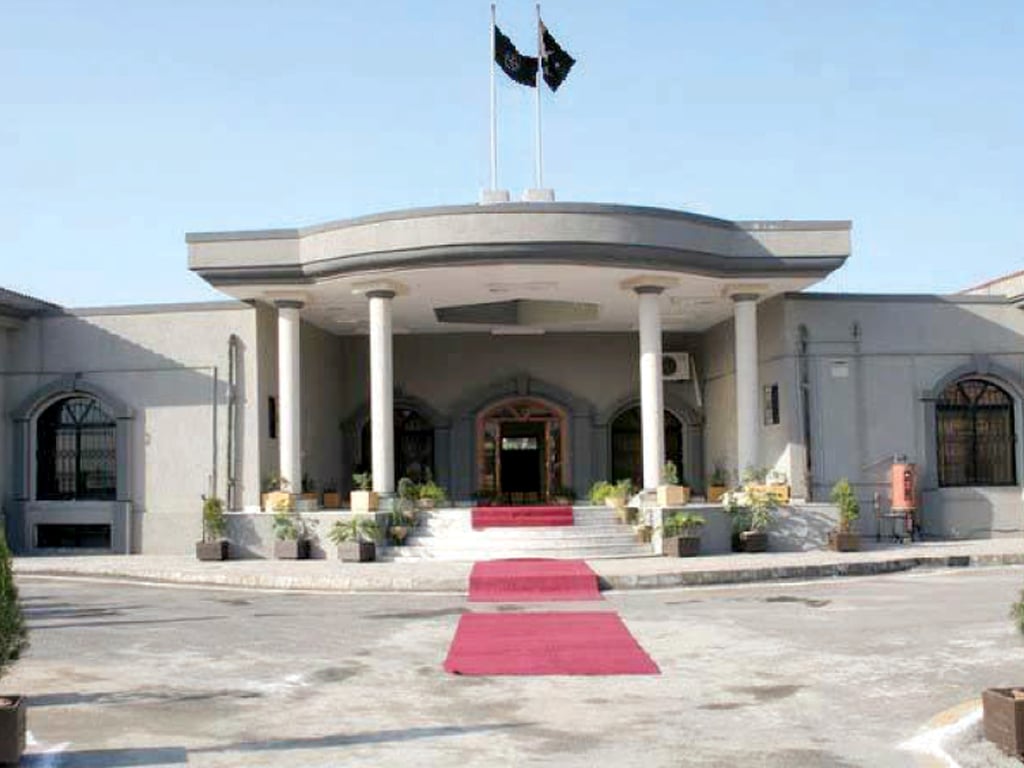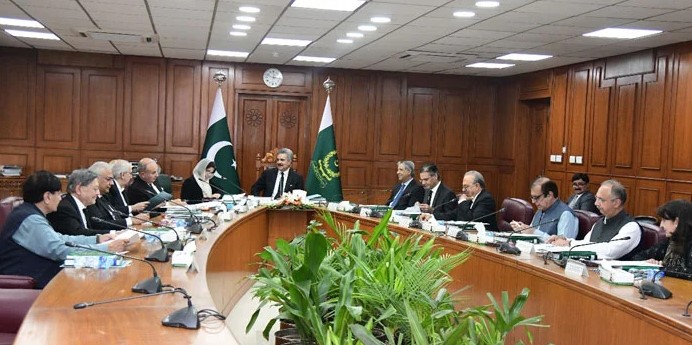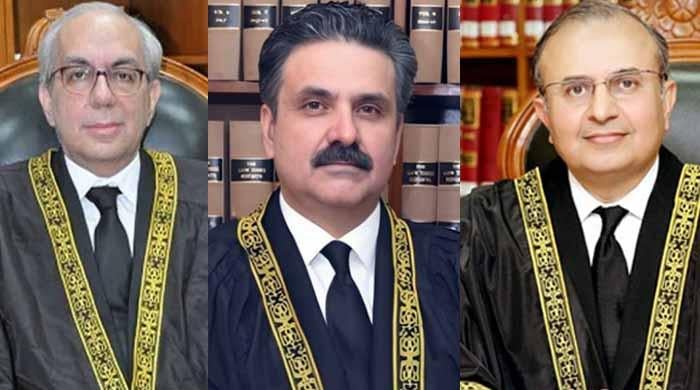LEGAL
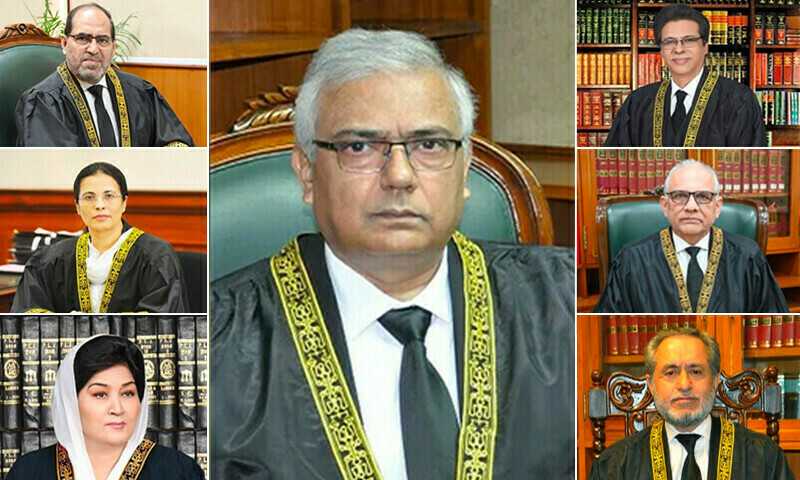
The Judicial Commission of Pakistan (JCP), in its maiden session on Tuesday, appointed Justice Aminuddin Khan to lead the newly formed seven-judge constitutional bench, following a heated debate and a 7-5 majority vote. The bench will oversee significant constitutional matters for a period of 60 days, in line with the latest legislation passed by Parliament.
Justice Aminuddin Khan, who ranks fourth in seniority among the Supreme Court judges, was chosen to lead the bench. The selection process was contentious, with Chief Justice of Pakistan (CJP) Yahya Afridi among those dissenting, as he had proposed that the CJP should lead the constitutional bench. Despite this, a majority of the JCP members, including Law Minister Azam Nazeer Tarar and Attorney General Mansoor Usman Awan, voted in favor of the current arrangement.
The seven-judge constitutional bench includes representation from all four provinces of Pakistan:
Justice Aminuddin Khan and Justice Ayesha A. Malik from Punjab
Justices Jamal Khan Mandokhail and Naeem Akhtar Afghan from Balochistan
Justices Muhammad Ali Mazhar and Hassan Azhar Rizvi from Sindh
Justice Musarrat Hilali from Khyber Pakhtunkhwa
The newly appointed bench is set to function for a two-month term, following the amendment to the Constitution under the 26th Amendment, which increased the number of Supreme Court judges from 17 to 34.
Debate and Dissent
The vote on the bench's composition was marked by differences of opinion within the JCP. While the majority favored Justice Aminuddin Khan's leadership, the minority, led by CJP Yahya Afridi, argued that the bench should include all Supreme Court judges, forming a full court. This proposal was rejected by the majority, who cited potential procedural anomalies that could arise if appeals were made to a larger bench not involved in the original ruling.
In the minority group, which voted against the current setup, were senior puisne judges Justice Syed Mansoor Ali Shah, Justice Munib Akhtar, and opposition leaders Shibli Faraz and Omar Ayub, who voiced concerns over the bench's composition and leadership.
Quorum Dispute
Another point of contention at the meeting was the quorum. Omar Ayub raised an objection regarding the absence of one JCP member, challenging the validity of proceeding without the full quorum. However, after a vote, the majority affirmed that the meeting could continue under the current constitutional provisions, and the quorum issue did not halt the proceedings.
Role of the Constitutional Bench
The constitutional bench's mandate is crucial, as it will address significant constitutional issues arising from the passage of the 26th Amendment, which altered the structure of the Supreme Court. A three-judge committee, comprising the CJP, Justice Mansoor Ali Shah, and Justice Aminuddin Khan, will decide which cases should be referred to the constitutional bench for adjudication.
The JCP also discussed the establishment of a dedicated secretariat to assist in the functioning of the commission. This secretariat will support the smooth operation of the JCP, including coordination for future meetings and case management.
Looking Ahead
The JCP’s decision has set the stage for a more robust constitutional process. The Sindh Assembly has already passed a resolution to form a constitutional bench at the provincial level, and a follow-up JCP meeting is expected in two weeks to nominate judges from the Sindh High Court for its constitutional bench.
The legal and constitutional community is closely watching the JCP’s next steps, especially given the urgency expressed by some judges regarding the challenges to the 26th Amendment. While a letter from Justices Shah and Munib Akhtar urged the CJP to convene a meeting to address the scheduling of petitions, the issue is likely to come up in future meetings of the JCP.
